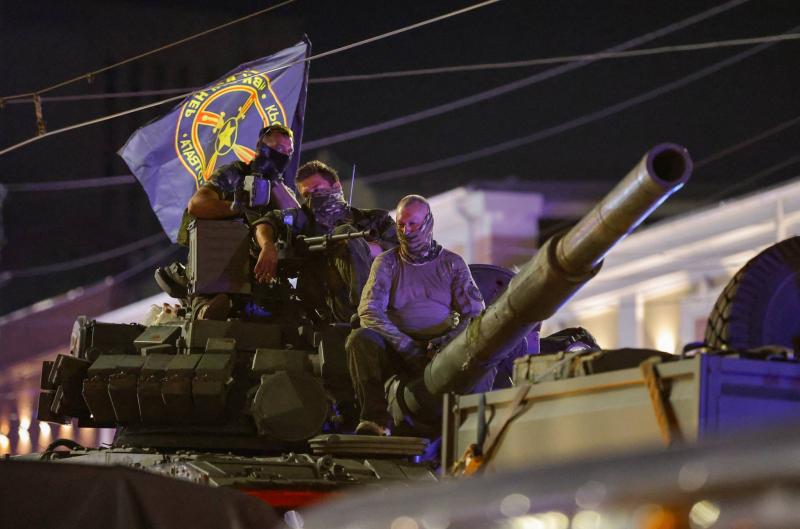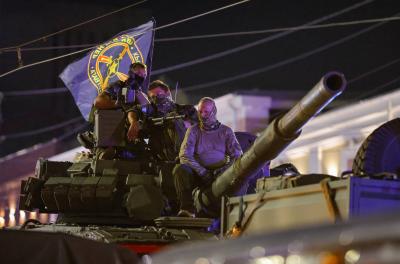Western officials have revealed that Wagner leader Yevgeny Prigozhin planned to seize the Russian military leadership as part of a rebellion over the past weekend, accelerating his plans after the local intelligence agency learned of the conspiracy.
The early launch of the scheme was among the factors that could explain its ultimate failure after 36 hours, when Prigozhin canceled an armed march toward the capital Moscow, which initially faced little resistance. Originally, Prigozhin intended to capture Defense Minister Sergei Shoigu and General Valery Gerasimov, the Chief of the General Staff of Russia, during a visit to a southern region on the border with Ukraine that both were planning to attend. However, the Federal Security Service (FSB) learned of the plan two days before it was executed, according to what "The Wall Street Journal" reported from Western officials.
Western agencies significantly contributed to uncovering Prigozhin's plans. Western intelligence agencies discovered Prigozhin's plans, a former close associate of Putin, early on through the analysis of intercepted electronic communications and satellite images, according to someone familiar with the findings. Western officials believe that the original plot had a good chance of success but failed after the conspiracy was leaked, forcing Prigozhin to improvise an alternative plan.
Nevertheless, the intelligence raises questions about Putin's power after Moscow failed to prevent Wagner forces from advancing nearly to Moscow, despite the Kremlin being aware of the conspiracy, according to sources familiar with the matter. Prigozhin's “chef” conspiracy relied on the belief that part of the Russian armed forces would join the rebellion and turn against their leaders, according to this intelligence.
Preparations also included stockpiling large quantities of ammunition, fuel, and equipment, including tanks, armored vehicles, and advanced air defense systems, days before the attack, according to Western intelligence findings. After learning of the leak of his plan, Prigozhin was forced to act sooner than originally planned on Friday and managed to seize the city of Rostov in southern Russia, a key command point for the invasion of Ukraine.
Senior officers in the Russian army were aware of the Wagner leader's scheme. The ease with which Wagner forces took the city, which has a population of one million and includes a major military airport, indicated that some leaders of regular forces might have been part of the conspiracy, according to Western intelligence. Western officials stated that they believe Prigozhin communicated his intentions to senior military officers, likely including General Sergei Surovikin, head of the Russian Space Forces.
It remains unclear whether Surovikin passed this information to the guards, or how the agency discovered Prigozhin's plans. Surovikin was the first senior commander to denounce the conspiracy on Friday, urging Prigozhin to call off his men. Forces under Surovikin's command also launched airstrikes against Wagner, marking the only such attack by regular forces against the rebellion.
The rebellion could have potentially ended in armed confrontation in Moscow if Belarusian President Alexander Lukashenko had not offered to mediate, according to Western intelligence analysis. Lukashenko suggested hosting Wagner in his country, partly to bolster his security against potential incursions by Russia, according to Western intelligence, as Putin has long sought to integrate Belarus into the Russian Federation.
Additionally, Western intelligence believes that the permanent stationing of Wagner forces, agreed upon as part of a deal to defuse the crisis, aims to serve as a guarantee for Lukashenko’s personal security.
Notably, General Viktor Zolotov, head of the Russian National Guard, a local military force that reports directly to President Vladimir Putin, stated that the authorities were aware of Prigozhin's intentions before he began his attempt. Zolotov explained to official media that "specific leaks regarding preparations for the rebellion, which was set to begin between June 22 and 25, were leaked from Prigozhin's camp."




